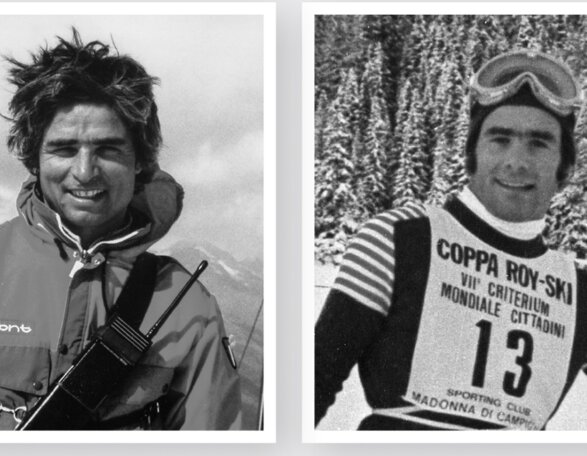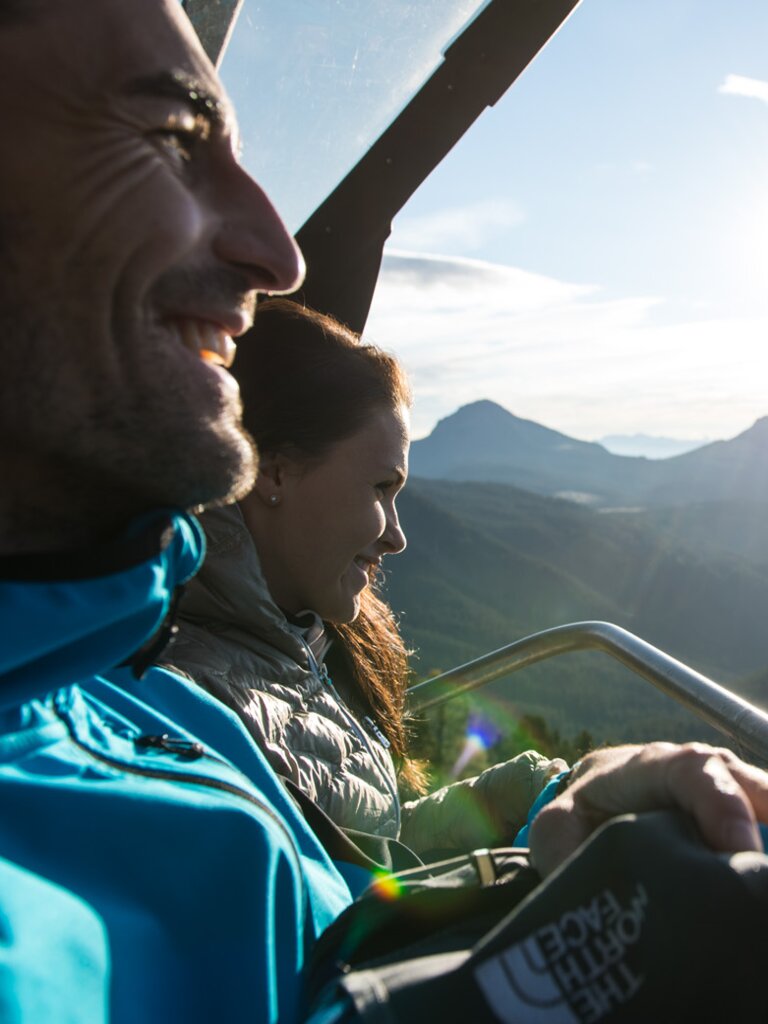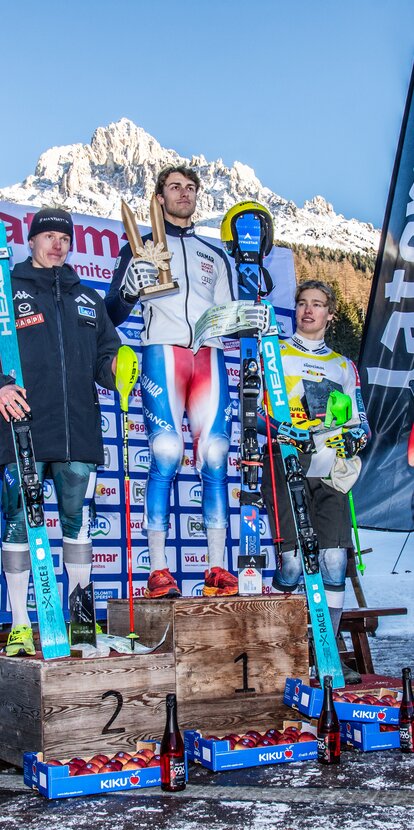

The traditional European Cup slalom on the selective Maierl slope will take place on a Friday this year, on December 19th. A top result on the Maierl slope is good for self-confidence. The past teaches us that.
Two years ago, the European Cup celebrated its 40th anniversary in Obereggen. No other European Cup venue can look back on a longer tradition, which is why Obereggen has already been dubbed the “Kitzbühel of the European Cup”. Over the decades, giant slaloms (1983), slaloms (from 1984), super-Gs (1985-2000) and combinations (1984-1989) have been held.
In these 40 years, the team around SC Eggen, SC Rosengarten/ASE Catinaccio and, since 2022, ASV Deutschnofen in its place, as well as the Obereggen Ski School and Obereggen Latemar AG have earned a reputation for being extremely professional and reliable. Obereggen has also established itself on the international ski circuit as an extremely snow-sure race venue despite the early start to the season. Only four times in 40 years has the European Cup not been held as planned: in 1994 and 2000 it had to be canceled, in 1996 and 2019 there were race cancellations. It was also canceled in 2020 due to the coronavirus pandemic.
in the picture: Antoine Azzolin (FRA), winner of the Obereggen European Cup 2024
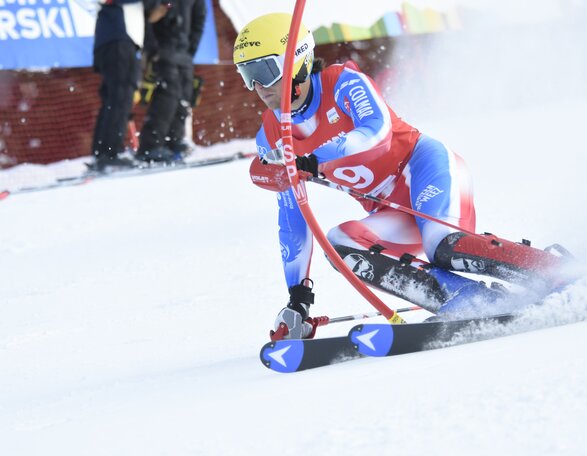
On Friday, 19th December, just five days before Christmas Eve, the prestigious Europa Cup slalom will take place on the challenging Maierl slope in Obereggen. A good result on this challenging course can give athletes a confidence boost for the rest of the season. History has proven this to be true, especially during this Olympic winter. Meanwhile, speed specialists will be competing in the World Cup super-G in Val Gardena.
The Obereggen Europa Cup slalom forms part of an especially busy race schedule at the beginning of this Olympic season. Prior to Obereggen, there will be World Cup slalom races in Levi (16 November), Gurgl (23 November) and Val d’Isère (14 December). Just three days after Obereggen, on 22 December, another World Cup slalom is scheduled in Alta Badia. Despite the early date, Obereggen is already the third Europa Cup slalom stop, following Levi (21 November) and Storklinten (23 November). The day after Obereggen, another Europa Cup slalom will take place in Val di Fassa.
Slalom skiers are spoilt for choice. Nevertheless, Obereggen can always count on a strong field thanks to its status as the most traditional stop on the Europa Cup circuit, not to mention the demanding nature of the Maierl slope. This attracts several World Cup stars, as is always the case in Obereggen. Furthermore, Obereggen provides an opportunity for young talents to showcase their skills, as the Maierl slope is a true proving ground.
in the picture: Jesper Pohjolainen (FIN), runner-up at the Obereggen 2024 European Cup
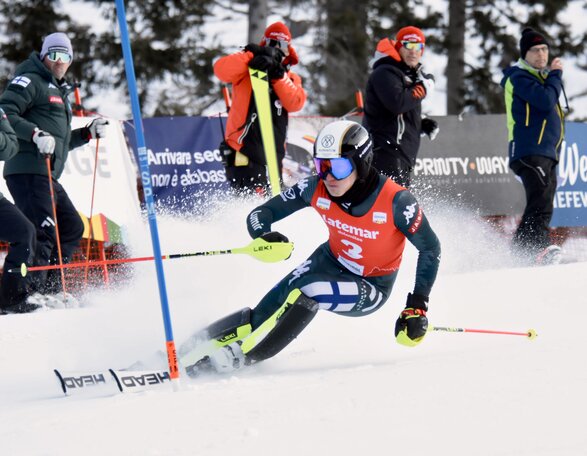
Countless World Cup winners, world champions and Olympic champions have stood on the podium in Obereggen in its 40-year history. Above all, the Austrian Marcel Hirscher, the most successful skier of all time, having won a total of eight World Cups, seven World Championship titles and two Olympic gold medals: in 2007 in Obereggen, 18-year-old Hirscher finished third.
Athletes such as Clement Noel, Andre Myhrer, Giuliano Razzoli, Reinfried Herbst, Manfred Pranger, Alberto Tomba, Benjamin Raich, Stephan Eberharter, Kristian Ghedina, Luc Alphand, Tomas Fogdoe, Rudi Nierlich, Armin Bittner and Peter Müller have also stood on the podium in Obereggen.
Countless world slalom stars pass through Obereggen. Six of the ten best slalom racers in the world last winter made it onto the podium in Obereggen: Alexander Steen Olsen (2021), Loic Meillard (2016) and Manuel Feller (2012) won; Ramon Zenhaeusern (2015) and Daniel Yule (2013) were second; Clement Noel (2017) came third. Only the reigning World Champion and Slalom World Cup winner Henrik Kristoffersen finished among the comprimarios in Obereggen: 11th in 2012 when he was a talented hopeful.
in the picture: Alberto Tomba (ITA), European Cup Obereggen 1986
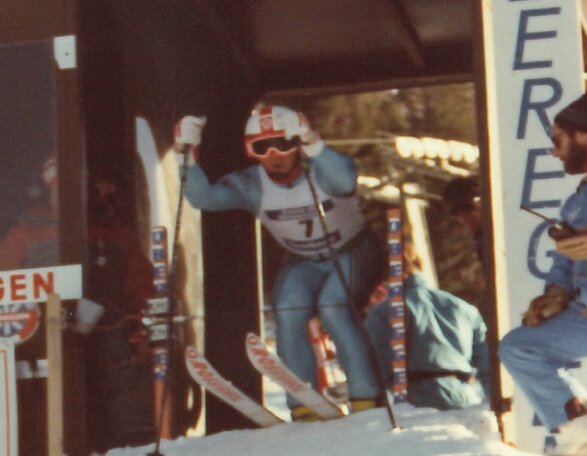
The unforgotten: Karl and Peter Pichler, Bruno Fusmini, Jakob Kerer, Peppi Staffler
Since its birth, the European Cup in Obereggen has been dedicated to the two Eggental brothers Karl and Peter Pichler, who both lived for skiing and both died tragically when they were once again out and about for their sport - Peter in 1977 in an avalanche accident on the Jochgrimm, Karl in 1982 in a traffic accident in New Zealand, where he was coaching the Italian national team.
The Obereggen European Cup is also closely associated with three other names: Co-founder Bruno Fusmini was president of the organizing committee from 1992 to 1997 before he passed away in 1998. Peppi Staffler was also one of the men from the very beginning and was involved until his death in January 2024. Finally, Jakob Kerer was a reliable and responsible member of the European Cup Committee from the very beginning until his death in summer 2020.
in the picture: Karl and Peter Pichler
